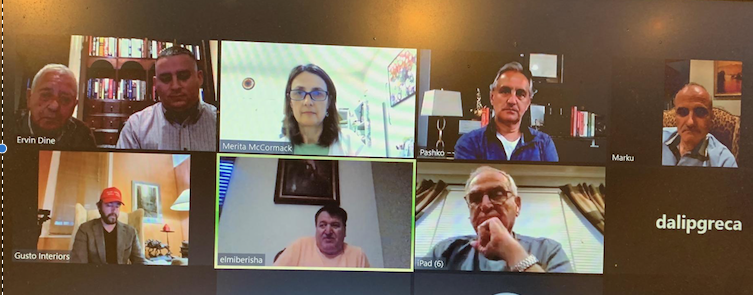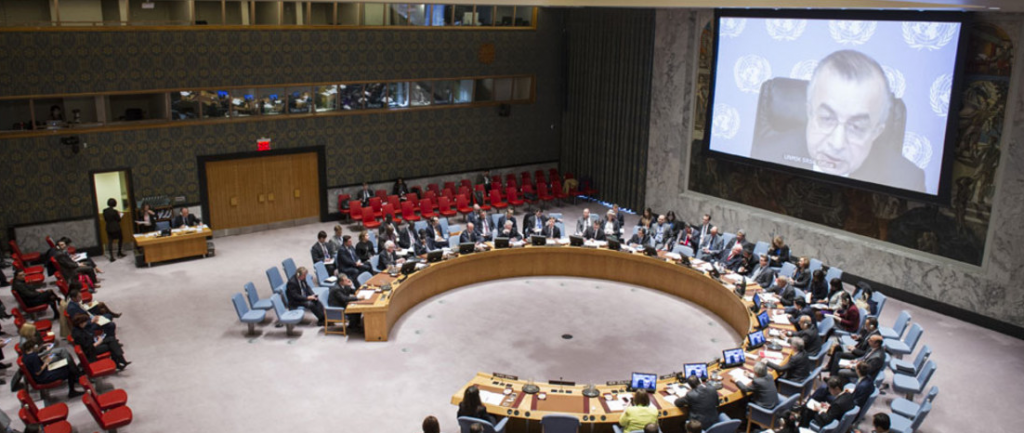
By Rafaela Prifti/
In a reminder of the way coronavirus has transformed American lives and traditions, in the third month of the quarantine for some areas, Memorial Day parades have been canceled and many gatherings have been curtailed with scaled back crowds. Other ceremonies went forward with fewer participants. Instead of the usual events, there were drive-by parades and patriotic house-decorating contest in towns across the country. This year we pay tribute to the fallen soldiers on the battlefield and the veterans who died from the virus. The toll of the virus on military veterans has been particularly harsh. They are older, have underlying health problems, and many reside in facilities that have been breeding grounds for the disease. According to the Department of Veterans Affairs, more than 1,000 veterans have been killed by the coronavirus. Hundreds more have died in state-run veterans homes, such as the hard-hit facilities in New Jersey, Massachusetts and Louisiana. Around the country families are struggling to find ways to honor fallen heroes on a Memorial Day like no other, with people avoiding crowds to prevent the spread of the virus. The Vietnam Veterans Memorial Fund traditionally holds a large ceremony in Washington. This year, the organization decided to hold a virtual ceremony and share video messages submitted by the loved ones of fallen troops. The grief is compounded with the difficulty of not being able to pay proper reverence and homage to the veteran family members who died at nursing homes and hospitals. “Are there different kinds of grief?” I posed the question to Neka Doko, an Alternative Eco-Therapy Researcher and Practitioner in Boston. “In my view, grief is a natural complex feeling and behavior of any human being that may accompany the thoroughness of their drama, tragedy and loss. The intensity and the length of its personal, socio and psychological evolution depend upon the cause of it, since each one of us experience the state of grieving differently from one another in terms of the correlation with the cause. With that said, there are many different kinds of grief. I can think of two main categories of grief: collective and personal ones. In the present days, we are experiencing the shock and the common grief in a global scale due to the coronavirus pandemic, which qualifies as a collective grief. Within it, one can see the cultural grief – the group of people, like African Americans or Latin Americans…as communities who were hit hard by the virus and suffered huge losses) also the social, political, economic aspects brought to the surface by the pandemic whereas the personal grief is a family being affected by the loss of a member, or a relative a friend or a co-worker. I asked Ms. Doko to elaborate on the emotional toll associated with the deep sense of loss. She explained that in such cases there are risks of complex mental health complications and behavioral disorders… and that complex combination is very unique to each all of us. “Each one perceives pain and loss differently and is uniquely equipped to cope with it by creating and practicing positive habits to improve emotional wellbeing in the face of the Coronavirus,” said Ms, Doko. Experts are warning of the emotional and mental health toll of the frontline workers at hospitals, nursing homes, paramedics, and medical staff. Alongside the experience of loss, there are possibilities of developing life-threatening illnesses. Handling stress in order to ultimately cope creates positive habits and reduce response patterns that predict post-traumatic stress disorder, in which a tragic event leads to symptoms such as disturbing flashbacks and severe anxiety. Studies show that the majority of people who have suffered or gone through a life threatening event recover on their own and never meet criteria for PTSD. Trusting in the human ability to recover increases the chances of coping with the event they have endured. Human resilience is very powerful. For those who are struggling more profoundly, research shows that even the most intense feelings of hopelessness eventually pass. One venue is finding ways to distract yourself. In order to increase our well-being in the middle of facing a trauma, experts recommend taking breaks. While being surrounded by bad news, the specialists’ advice activities to offset the pain, like something you once enjoyed doing. Improve your well-being by taking little moment to reflect and appreciate or make a donation to express your gratitude. These acts enhance your human resilience in dealing with a crises. Another key resource is the community of people, which in the case of the pandemic encompasses the whole globe. Staying connected with a support group helps combat the feelings of loneness and loss. As the result of the quarantine, there are infinite amounts of group wellness activity online, virtual talks and fitness classes. Participating in one or more of such events helps to improve the sense of connection and mood. Pay attention to your mindset by controlling the negative thoughts, silencing the self-critic and passing no judgment. One way to move away from negative thoughts is to ask yourself, “Is this helpful?” doctors say. Studies show that overthinking invites depression, Instead of staying stuck in the same painful moment, experts recommend putting your concerns on paper, keeping notes or journal, as to provide a distraction for yourself. In the ways of improving our well-being, dealing with negative emotions is challenging. To notice one’s emotions and respond to the experience with perspective rather than avoiding negative thoughts or feelings altogether. Suppressing or pushing away can be counterproductive in helping to create a healthy relationship with your thoughts. The key is to balance accepting difficult feelings without multiplying them, while increasing your emotional immune system. Let the sense of purpose based on what you value drive your next steps or future possibilities that could improve the recovery.
In her comments on observing Memorial Day, Merita McCormack, member of Vatra’s Executive Board and one of the leaders in the Albanian community of the Dioceses of Arlington, provided insightful context and reflections. “For us, who are immigrants, integrating onto the life of the host country, includes getting to learn the history and as we weave our lives into the second homeland, we learn to be part of it and experience life as it happens in the new country,” she said. Acknowledging the many members of the community that answered the call, Ms. McCormack continued: “For Albanian Americans, Memorial Day is not just a holiday, it is a Remembrance Day that marks a significant part of the American history, which calls upon the individual and the society to reflect upon and draw lessons. While our inherent dignity and liberties are bestowed upon us by God, the nation is defended by men and women who want to give and serve and many have given their lives to do so, thus paying the ultimate price. We not only remember, respect and honor but we also participate in several ways. Whether laying a wreath, sharing a story, or offering prayers, we educate ourselves and our children, our communities too. We offer our thoughts and prayers for the fallen and we pledge to not forget. As a mother my heart goes to the mothers of the fallen, as a sister too. And as an individual, I wish to offer my time and care to the families of the fallen. As a fellow citizen, I am sad for the loss, but grateful to them for the ultimate sacrifice which guaranteed our freedom. As Albanians we understand the meaning of the blood shed to defend the country. Being where East meets West, Albania has had its own large share of wars and attacks and loss of life. We share that grief, that anger and also that gratitude for the heroes who died for our freedom. This little reflection won’t be complete though without mentioning that during communism there was division and class warfare even after death. Not all the fallen in the World War II were honored as deservingly as they are here in the USA. Thus a reminder that while our heroes fight to defend our country, they also fight to defend what is noble and democratic, for the justice and liberty for all. May God rest the soul of the fallen and shine His perpetual Light upon them!”
By now the virtual meetings and online events have become common for most of us. We communicate via a screen of faces, celebrate, honor and also grieve, collectively and personally. I thank the co-panelists Merita McCormack and Neka Doko for sharing their views. Then I bring up the pictures of the family members that we pay homage on Memorial Day: my uncle Apostol Prifti, older brother of Peter and Naum, joined the services of the Navy in the Pacific Ocean in 1958, and my nephew, Eri Tare, who served with the Translators Team at Camp Bondsteel in Kosova in 2006. Although years apart, their stories began in Albania and continued in the US where they embraced serving the country that made them proud to be Americans!



